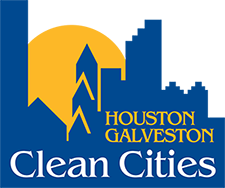Bipartisan Infrastructure Law (BIL)
Numerous grant opportunities are available under the Bipartisan Infrastructure Law (BIL). Many focus on alternative fuel projects including electric powered vehicles and infrastructure.
United States Department of Transportation
Rail Vehicle Replacement Grant Program (RAIL) (Closes 12/18/23)
The Federal Transit Administration (FTA) announces the opportunity to apply for approximately $197 million in Fiscal Year (FY) 2024 Section 5337 State of Good Repair Program funds (Catalog of Federal Domestic Assistance #20.525) authorized for competitively selected rail vehicle replacement projects. As required by Federal public transportation law and subject to appropriations, funds will be awarded competitively to States and local governmental authorities to assist in the funding of capital projects to replace rail rolling stock.
United States Environmental Protection Agency
Diesel Emissions Reduction Act (DERA) (Closes 12/31/23)
The purpose of the Diesel Emissions Reduction Act (DERA) is to provide grants and rebates for projects that protect human health and improve air quality by reducing harmful emissions from diesel engines. Eligible projects include replacements and repowers of school buses; class 5 through 8 heavy duty highway vehicles; locomotive engines; marine engines; and nonroad engines, equipment, and vehicles. Eligible applicants include regional, state, and local governments; port authorities; nonprofit organizations; and institutions that represent or provide pollution reduction or educational services to persons or organizations that own or operate diesel fleets or have the promotion of transportation or air quality as their principal purpose.
Clean School Bus Rebate Program (CSB) (Closes 1/10/24)
The Bipartisan Infrastructure Law of 2021 authorizes EPA to offer rebates to replace existing school buses with clean and zero-emission (ZE) models. The 2023 Clean School Bus (CSB) Rebates process includes SAM.gov account registration, rebate application submission, review and selection by EPA, selectees will then submit purchase orders to request payment and then receive payment, which is followed by new bus delivery, existing bus replacement, and project close out.
Clean Ports Program (Closes 9/30/27)
The Inflation Reduction Act of 2022 provides EPA with $3 billion to fund zero-emission port equipment and technology and to help ports develop climate action plans to reduce air pollutants at U.S. ports. This new funding program will build on EPA’s Ports Initiative that helps our nation’s ports, a critical part of our infrastructure and supply chain, address public health and environmental impacts on surrounding communities. EPA anticipates this new funding opportunity will become available for application through a notice of funding opportunity (NOFO) released in late winter 2024.
Department of Energy
Energy Storage Demonstration and Validation (DE-FOA-0003036) (Closes 12/04/23)
The objective of this opportunity is to fund demonstrations of different energy storage technologies that operate at a meaningful scale in the field and consist of strong partners that will advance innovative technologies to wider commercialization opportunities and serve impactful use cases for end users.
Carbon Utilization Procurement Grants under Bipartisan Infrastructure Law (DE-FOA-0002829) (Closes 04/30/24)
The overall objective of the planned Funding Opportunity Announcement is to support DOE’s current vision of the Carbon Utilization Procurement Grants Program which will illustrate that several incumbent products can be replaced or supplemented with alternatives that are derived from the conversion of anthropogenic carbon oxides, demonstrating that significant net reductions in greenhouse gas emissions are possible. These grants will illustrate that more sustainable alternatives are viable and will promote the deployment of these products even after the grant ends.
Electric Vehicle (EV) and Fuel Cell Electric Vehicle (FCEV) Tax Credit
Tax credits to individuals who purchase of electric vehicles and/or fuel cell electric vehicles.
Alternative Fuel Excise Tax Credit
A tax incentive is available for alternative fuel that is sold for use or used as a fuel to operate a motor vehicle. A tax credit in the amount of $0.50 per gallon is available for the following alternative fuels: natural gas, liquefied hydrogen, propane, P-Series fuel, liquid fuel derived from coal through the Fischer-Tropsch process, and compressed or liquefied gas derived from biomass. For propane and natural gas sold after December 31, 2015, the tax credit is based on the gasoline gallon equivalent (GGE) or diesel gallon equivalent (DGE). For taxation purposes, one GGE is equal to 5.75 pounds (lbs.) of propane and 5.66 lbs. of compressed natural gas. One DGE is equal to 6.06 lbs. of liquefied natural gas.
Department of Agriculture
Renewable Energy for America Program (REAP) (Closes 12/31/23)
The program provides guaranteed loan financing and grant funding to agricultural producers and rural small businesses for renewable energy systems or to make energy efficiency improvements. Agricultural producers may also apply for new energy efficient equipment and new system loans for agricultural production and processing. Eligible applicants are agricultural producers that directly engaged in production of agricultural products where at least 50 percent of their gross income coming from agricultural operations, and small businesses (in accordance with 13 CFR 121) located in eligible rural areas and one of the following:
- Private for-profit entity (sole Proprietorship, Partnership, or Corporation)
- A Cooperative [including those qualified under Section 501(c)(12) of IRS Code]
- An electric utility (including a Tribal or governmental electric utility) that provides service to rural consumers and operates independent of direct government control)
- A Tribal corporation or other Tribal business entities that are chartered under Section 17 of the Indian Reorganization Act (25 USC 477) or have similar structures and relationships with their Tribal entity without regard to the resources of the Tribal government.
Higher Blends Infrastructure Incentive Program (HBIIP) (Closes 9/30/24)
The purpose of HBIIP is to increase significantly the sales and use of higher blends of ethanol and biodiesel by expanding the infrastructure for renewable fuels derived from U.S. agricultural products.
